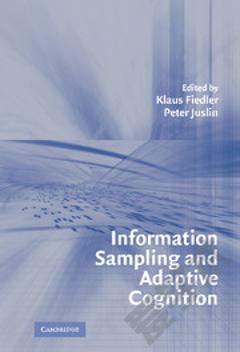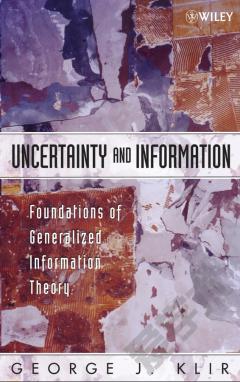Information Sampling and Adaptive Cognition
Part I. Introduction: 1. Taking the interface between mind and environment seriously Klaus Fiedler and Peter Juslin Part II. The Psychological Law of Large Number: 2. Good sampling, distorted views: the perception of variability Yakoov Kareev 3. Intuitive judgments about sample size Peter Sedlmeier 4. Risky prospects: when valued through a window of sampled experiences Ralph Hertwig, Greg Barron, Elke Weber and Ido Erev 5. Less is more in contingency assessment - or is it? Peter Juslin, Klaus Fiedler and Nick Chater Part III. Biased and Unbiased Judgments from Biased Samples: 6. Subjective validity judgments as an index of sensitivity to sampling bias Peter Freytag and Klaus Fiedler 7. An analysis of structural availability biases and a brief study Robyn Dawes 8. Subjective confidence and the sampling of knowledge Joshua Klayman, Jack Soll, Peter Juslin, and Anders Winman 9. Contingency learning and biased group impressions Thorsten Meiser 10. Mental mechanisms: speculations on human causal learning and reasoning Nick Chater and Mike Oaksford Part IV. What Information Contents Are Sampled?: 11. What's in a sample? A manual for building cognitive theories Gerd Gigerenzer 12. Assessing evidential support in an uncertain environment Chris M. White and Derek Koehler 13. Information sampling in group decision making: sampling biases and their consequences Andreas Mojzisch and Stefan Schulz-Hardt 14. Confidence in aggregation of opinions from multiple sources David Budescu, Adrian K. Rantilla, Tzur M. Kareliz and Hsiu Ting Yu 15. Self as a sample Joachim Krueger, Melissa Acevedo and Jordan Robbins Part V. Vicissitudes of Sampling in the Researcher's Mind and Method: 16. Which world should be represented in representative design? Ulrich Hoffrage and Ralph Hertwig 17. 'I'm m/n confident that I'm correct': confidence in foresight and hindsight as a sampling probability Anders Winman and Peter Juslin 18. Natural sampling of stimuli in (artificial) grammar learning Fenna Poletiek 19. Is confidence in decisions related to feedback? Evidence - lack of evidence - from random samples of real-world behavior Robin Hogarth.
{{comment.content}}








 京公网安备 11010802027623号
京公网安备 11010802027623号